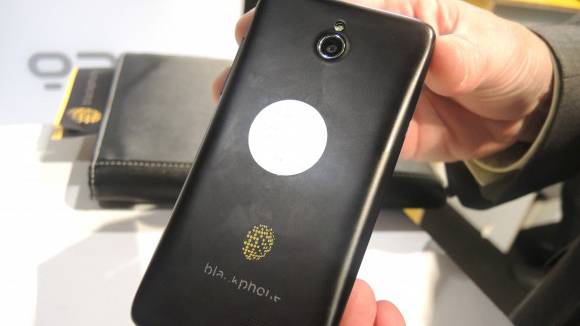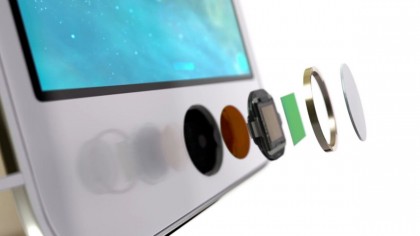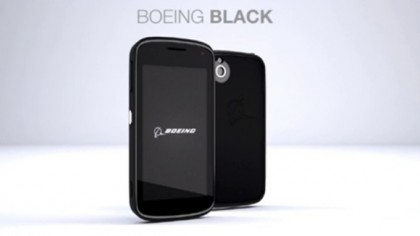Is this the age of the ultra-secure smartphone?
Smartphones are taking the black and getting secure

Sign up for breaking news, reviews, opinion, top tech deals, and more.
You are now subscribed
Your newsletter sign-up was successful
There was a time when BlackBerry was the phone maker of choice for those who wanted the best security the market could offer. Work in Washington or run a multinational corporation? Then have we got the QWERTY phone for you.
It's no secret BlackBerry is no longer what it once was, yet even as the Canadian company's fortunes continue to fall, a new host of firms have begun making "secure phones" to take Waterloo's place.
And these companies are already making smartphone security tighter than it's ever been before.
Boeing and GeeksPhone, two very different contenders that are offering strikingly similar products, are leading this ultra-secure charge. They even have similar names; GeeksPhone introduced the Blackphone in January, while its main rival is the Boeing Black.
Others, like the FreedomPop Privacy Phone (nicknamed the Snowden Phone), have also emerged.
Devices like these were once reserved for the rich and powerful, but now the conversation about security is louder than ever and consumers are bit by bit gaining super-secure smartphone access.
Security as a selling point
One need only look at Apple, arguably the industry's most prominent trendsetter, taking advanced security mainstream by adding a fingerprint sensor to the iPhone 5S. It's not exactly perfect, but it shows that smartphone security that goes beyond a simple passcode is a common concern.
Sign up for breaking news, reviews, opinion, top tech deals, and more.
And given the events of the past year or so - what with the NSA and other governments' spy agencies apparently checking your phone, hacking into your webcam and reading your diary - it's not hard to understand why the stakes seem higher than ever.

Just compare the language we used to describe the company Trustonic's efforts to make phones more secure back in 2012 with how the Blackphone was described this week.
Back then we wanted phones to be "as secure as your bank," now they need to compare to Fort Knox itself.
But can these new secure phones really help protect your personal info and private data from prying eyes?
Into darkness
In the black corner, we've got the Boeing Black. With a name like that and an introductory video with music like something out of a 007 flick, you've got to assume that this thing means business. And you'd be right - it will literally self-destruct if you try to tamper with it.
The Boeing Black is not winning any contests when it comes to specs, with a 4.3-inch 960 x 540 display and a 1.2GHz ARM Cortex A9 processor. But what it lacks there it makes up for in security.
That's what we've been led to believe, at least. We can't really know, since Boeing wants its secure phone to be so secure that no one actually knows how secure it is.
Boeing has been working on the Black for three years, the aerospace company told Reuters, and it's already offering the phone to select government agencies and contractors.
The Black runs a custom version of Android that Boeing told The Wall Street Journal it built from scratch. And it has dual SIMs, though Boeing won't say who manufactures the phone or what carriers it's compatible with.

It can even connect with biometric sensors and satellites, and attachments give it extra battery and even solar charging.
The company hasn't outright stated that the Boeing Black won't become widely available, but there's also no word of a commercial release date or pricing. Perhaps these questions aren't ready to be answered (which seems likely), or perhaps it's all part of the plan - shroud the Black in mystery, leaving would-be identity thieves and other nefarious types in the lurch.
Unfortunately, this also means consumers are left with a phone that may be harder to find than an America's Most Wanted suspect.
Michael Rougeau is a former freelance news writer for TechRadar. Studying at Goldsmiths, University of London, and Northeastern University, Michael has bylines at Kotaku, 1UP, G4, Complex Magazine, Digital Trends, GamesRadar, GameSpot, IFC, Animal New York, @Gamer, Inside the Magic, Comic Book Resources, Zap2It, TabTimes, GameZone, Cheat Code Central, Gameshark, Gameranx, The Industry, Debonair Mag, Kombo, and others.
Micheal also spent time as the Games Editor for Playboy.com, and was the managing editor at GameSpot before becoming an Animal Care Manager for Wags and Walks.
